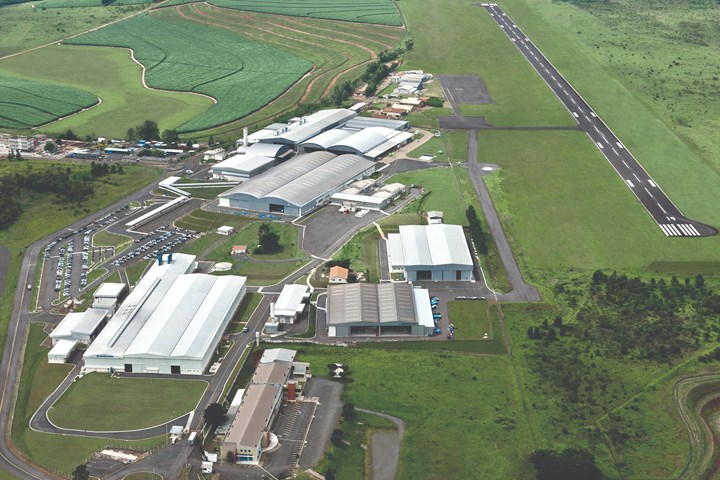Embraer makes 4.5% adjustment to global workforce structure
The measure stems from the impacts caused by the COVID-19 pandemic and the cancellation of the company’s partnership with Boeing in late April.

Embraer's Botucatu facility in Brazil. Photo Credit: Embraer
Embraer (São José dos Campos, Brazil) announced on Sept. 3 a 4.5% adjustment to its global workforce, which corresponds to approximately 900 employees in Brazil. The measure stems from the impacts caused by the COVID-19 pandemic on the global economy and the cancellation of the company’s partnership with Boeing. The objective is to ensure Embraer's sustainability and engineering capacity.
The pandemic is said to have particularly affected Embraer Commercial Aviation, which experienced a 75% reduction in aircraft deliveries during the first half of 2020 as compared to the same period last year.
According to Embraer, the situation worsened as a result of the duplication of structures associated with the carve-out of the company’s commercial aviation business in preparation for the partnership which was terminated at the initiative of Boeing, as well as the expectation that the air transport sector will not recover in the short- or medium-term.
Since the beginning of the pandemic, Embraer says it has adopted a series of measures to preserve jobs, including collective vacations, reduced working hours, furloughs, paid leave and three voluntary dismissal plans (VDP). The company has also reduced face-to-face work at its industrial plants with the aim of ensuring the health of employees and business continuity. Around 1,600 employees chose to participate in the VDPs in Brazil.
The company recognizes and appreciates the commitment of those professionals who are leaving the organization and counts on the commitment of all employees to overcome the current crisis and maintain the company’s competitiveness in the global market.
Related Content
-
Women in the Composites Industry brings together women for networking, educational opportunities
Aiming to support the growth of women in this industry, the WCI industry group and its partners recently held its first live training event hosted by Owens Corning.
-
Toray, University of Chicago speed up polymer recycling R&D
A jointly developed multi-scale computational predictive technique can accurately predict viscoelasticity from the chemical structures of polymers, ramping up product maturation.
-
Belzona opens fifth European SuperWrap Training Centre
Global training facilities provide intensive, first-class installer and supervisor training for proper use and application of Belzona composite pipe and tank repair systems.
















